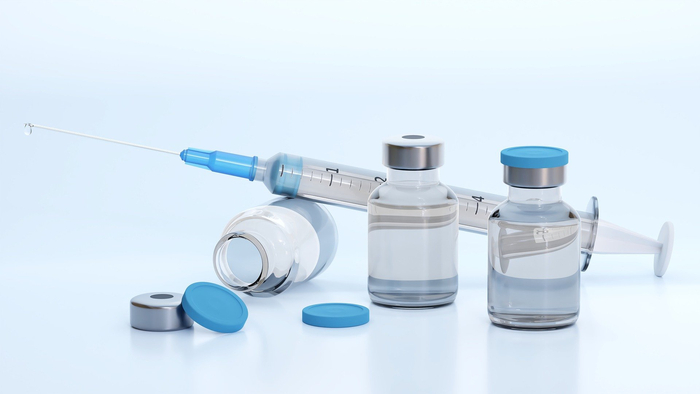A study involving hypothetical COVID-19 vaccines suggests that vaccine effectiveness and risk of side effects significantly influence people’s preferences for one vaccine over another, and that differences between vaccines may matter less to those who are vaccine hesitant. Sabrina Stöckli of the University of Bern and the University of Zurich, Switzerland, and colleagues present these findings in the open-access journal PLOS ONE on May 4, 2022.

Credit: MasterTux, Pixabay, CC0 (https://creativecommons.org/publicdomain/zero/1.0/)
A study involving hypothetical COVID-19 vaccines suggests that vaccine effectiveness and risk of side effects significantly influence people’s preferences for one vaccine over another, and that differences between vaccines may matter less to those who are vaccine hesitant. Sabrina Stöckli of the University of Bern and the University of Zurich, Switzerland, and colleagues present these findings in the open-access journal PLOS ONE on May 4, 2022.
COVID-19 vaccines are easing the spread and severity of the disease in many parts of the world. Despite their safety and effectiveness, some people who are eligible to get vaccinated are hesitant to do so. A deeper understanding of the factors that influence perceptions of vaccines could help inform efforts to address vaccine hesitancy and maintain headway against the pandemic.
To investigate vaccine preferences, Stöckli and colleagues presented more than 5,000 people from France, Germany, and Sweden with pairs of hypothetical vaccines that varied in several attributes, including effectiveness, country of origin, and cost. The participants rated how likely they would be to choose to receive each vaccine and selected their preferred vaccine from each pair. They also answered questions about their risk tolerance and their attitudes towards vaccines.
Statistical analysis of the results showed that the attributes with the biggest influence on hypothetical vaccine preference were effectiveness and prevalence of side effects. Participants were also less likely to favor vaccines from China or Russia and more likely to favor mRNA vaccines and those that cost less.
However, participants who displayed greater vaccine hesitancy showed less distinction between different attributes in their vaccine preferences. The researchers say these findings highlight the need to account for people’s individual differences when considering vaccine preferences.
Because the attributes of these hypothetical vaccines do not necessarily reflect characteristics of actual COVID-19 vaccines, the real-world implications of this study may be limited.
Nonetheless, while more research is needed, the researchers conclude that public health messaging should seek to clarify the attributes of different vaccines, but that such efforts are not likely to increase vaccination rates among people who are the most vaccine hesitant. Instead, messages for this population could focus on changing attitudes towards vaccines.
The authors add: “Consistent with other studies, we show that people much preferred to receive vaccines that were shown to offer a robust level of protection against COVID-19, with minimal side effects, while other differences between vaccines had minimal impact on uptake. However, we show that these factors mattered much more for people who were already open to vaccinations in general, whereas vaccine hesitant individuals were much less likely to accept a COVID vaccine, regardless of how effective and safe it was.”
#####
In your coverage please use this URL to provide access to the freely available article in PLOS ONE: https://journals.plos.org/plosone/article?id=10.1371/journal.pone.0266003
Citation: Stöckli S, Spälti AK, Phillips J, Stoeckel F, Barnfield M, Thompson J, et al. (2022) Which vaccine attributes foster vaccine uptake? A cross-country conjoint experiment. PLoS ONE 17(5): e0266003. https://doi.org/10.1371/journal.pone.0266003
Author Countries: U.K., U.S.A.
Funding: This project (J.R.) received funding from the European Research Council (ERC) under the European Union’s Horizon 2020 research and innovation programme (grant agreement No. 682758). The funders had no role in study design, data collection and analysis, decision to publish, or preparation of the manuscript.
Journal
PLoS ONE
DOI
10.1371/journal.pone.0266003
Method of Research
Experimental study
Subject of Research
People
Article Title
Which vaccine attributes foster vaccine uptake? A cross-country conjoint experiment
Article Publication Date
4-May-2022
COI Statement
The authors have declared that no competing interests exist.




